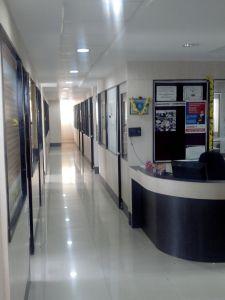


General Information
Posted
Ad details
Description of Software Testing
Software testingis an investigation conducted to provide stakeholders with information about the quality of the product or service under test.[1]Software testing can also provide an objective, independent view of the software to allow the business to appreciate and understand the risks of software implementation. Test techniques include, but are not limited to, the process of executing a program or application with the intent of finding software bugs (errors or other defects).
It involves the execution of a software component or system component to evaluate one or more properties of interest. In general, these properties indicate the extent to which the component or system under test:
meets the requirements that guided its design and development,
responds correctly to all kinds of inputs,
performs its functions within an acceptable time,
is sufficiently usable,
can be installed and run in its intended environments, and
achieves the general result its stakeholders desire.
Software testing can be conducted as soon as executable software (even if partially complete) exists. The overall approach to software development often determines when and how testing is conducted. For example, in a phased process, most testing occurs after system requirements have been defined and then implemented in testable programs. In contrast, under an Agile approach, requirements, programming, and testing are often done concurrently.
Contents of software testing:
Corporate Software Testing
Module1: Manual Testing
Basic Fundamentals of Testing
Project Phases
SDLC Process
Sorts of Testing
Testing Methodologies
Principles of Testing
Types of Testing
Levels of Testing
Environments
SDLC Models
Test Design Techniques
STLC Process
Quality Test Metrics
Quality Standards
ISTQB Preparation
Project
Module2: Database Testing
Introduction to Database
Introduction to MS-SQL Server 2005/2008
Databases in MS-SQL Server
Data Types in MS-SQL Server
DDL Statements
DML Statements
Operators
Other Operators
Clauses
Constraints
Joins
Alias
Triggers
Views
Indexes
Normalization
Procedures
Functions
Sub Queries
Database Checklist
Module3: UFT (Unified
Functional Tool) 12.0 V (QTP)
Introduction to Automation
Introduction to UFT
VB Scripting
Recording Modes
QTP Object Models
Object Repository
Object Identification Process
Check Points
Actions
Functions
Batch Testing
Synchronization
Output Values
Debugging
Running Modes
Random Number Testing
Regular Expressions
Recovery Scenario Manger
Step Generator
File System Object
Excel Object
Data table Object
Environment Object
Dictionary Object
Web Application Testing
Web Table
Keyword Driven Frame Work
Modularity Frame Work
Data Driven Frame Work
Hybrid Frame Work
Case Studies
Project
HP Certification Preparation
Module4: ALM 12.0 V
(Application Life Cycle Management)
Configuration Management
Site Administrator
Application Life Cycle Management
Manual Testing through ALM
Automation Testing through ALM
Generating Reports
Case Studies
Module5: Load Runner 12.0V
Introduction to Performance Testing
Introduction to Load Runner
LR Components
LR Terminology
LR Testing Process
HP Web Tours Overview
Web Tours Application Requirements
LR Protocols
Virtual User Generator
Controller
Analysis
Case Studies
Project
Module6: Selenium
Selenium-IDE
(Integrated Development Environment)
Introduction to Selenium
Introduction to Selenium IDE
Selenium IDE Commands
Java (Basics)
Introduction to Java
Features of Java
JVM
Parts of Java
Installing Java
Installing Eclipse
Comments
Architecture of Java Program
Rules & Regulations of Java Program
Naming Conventions in Java
Sample Java Program
Data Types
Operators
Decision Statements
Loop Control Statements
Arrays
Functions (Methods)
OOPS
Inheritance
Overloading
Overriding
Polymorphism
Abstraction
Encapsulation
Interfaces
Packages
File Handling
Exceptions
Selenium-Web Driver
Introduction to Web Driver
Object Identification Process
How to Install Web Driver
Driver Servers
Get Commands
Navigate Commands
Close & Quit Commands
File System Object
Excel Object
Input through Keyboard
Data Driven Framework
Frameworks:
J-unit Framework with ANT
Test-NG Framework with ANT
Case Studies
Project
*Conditions Apply
Thanks and Regards,
Systems Domain Jalahalli center
Contact Divya/Kavya/pooja @ 8197409373 / 9980228883/9535777600
Land line : 28372214/15
Email : divyajl@systemdomain.net / kavyajl@systemdomain.net
Systems Domain Pvt.Ltd
3rd Floor,Above Reliance Fresh, Near Ayyappa Temple,
Jalahalli Cross, Bangalore -560057
Share the ad
Ad statistics
![]() Number of views : 183
Number of views : 183
![]() Last visited : 06/02 at 22:40
Last visited : 06/02 at 22:40
![]() Reference : 34126
Reference : 34126